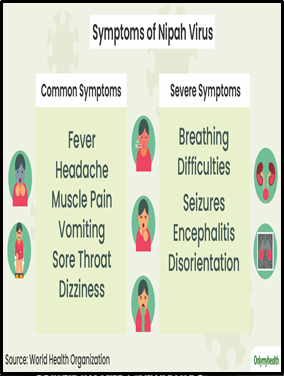IAV DEVELOPS NEW METHOD FOR NIPAH ANTIBODIES WITH VIRUS-LIKE PARTICLES
Why in the news?
- Scientists at the Institute of Advanced Virology (IAV) in Thonnakkal developed a method for producing non-infectious Nipah virus-like particles (VLPs) in the lab.
- These VLPs mimic the wild-type Nipah Virus (NiV), offering a safe and effective platform for developing neutralizing antibodies against NiV in a biosafety level-2 (BSL) laboratory.
source:medium
About the Institute of Advanced Virology (IAV):
- Affiliations:
- Affiliated with the Global Virus Network (GVN), the Institute of Advanced Virology (IAV) is a pioneering research institute.
- Location:
- Situated at the Bio 360 Life Sciences Park in Thonnakkal, Thiruvananthapuram.
- Background:
- Proposed during the Nipah Virus outbreak last year, the institute aims to address emerging infectious diseases promptly.
- Mandate:
- Tasked with confirming and detecting viruses quickly, the institute’s network of virologists facilitates rapid detection and prevention of virus-borne diseases like Nipah.
Understanding Nipah Virus:
Transmission and Spread:
Origin and Identification:
|




